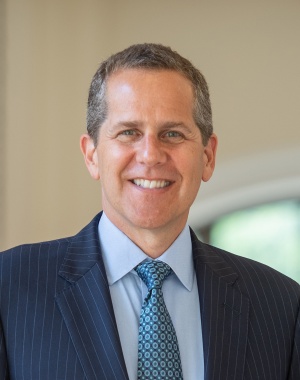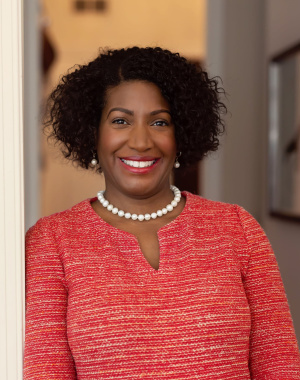Dean Michael S. Barr and associate dean Celeste Watkins-Hayes reflect on the school’s vision for and commitment to diversity, equity, and inclusion. April, 2022.
Transcript:
[Michael Barr] The Ford School and really the university as a whole launched DE&I 1.0 in 2016. So we finished up our first five years of working on diversity, equity and inclusion under that plan. And we're getting ready to evaluate that experience and to plan for DE&I 2.0, which would launch in the fall of 2023. In the interim, we wanted to make sure we're keeping the momentum going here at the Ford School. So we've identified a set of six priorities to work on for the next about a year and a half until the next plan is in place. And so we're really excited about these priorities. They're based on input from our community, data analysis, survey questions, and then really reflecting on what we've learned so far about our initiatives in this area.
[Celeste Watkins-Hayes] My vision for diversity, equity, inclusion and the Ford School is about creating a space where some of the most brilliant minds who come from different backgrounds, different life experiences, different perspectives, come together and discuss and learn about and analyze some of the most important social, political, and economic challenges of our time. We very much see the Ford School as a place where we are training leaders. And in order to do that, we have to bring people together who come from different experiences because from that we learn from each other. We learn about perspectives that we don't know about. We learn about the unintended consequences of some policy decisions. We learn about disparate impacts in terms of how some policies affect some communities more than others. So in order to be leaders, in order to be policy analysts, in order to be future political leaders, it's important to have a diverse set of perspectives.
[Michael Barr] Diversity, equity and inclusion is a core value of the Ford School, it is inseparable from our pursuit of public good. It really is essential to the character of the institution. So we infuse diversity, equity and inclusion in all of our activity.
[Michael Barr] We're not taking an approach that says one individual is alone responsible for DE&I. Quite the contrary, we are saying this is really part of all of our responsibility, from my own position all the way through the institution that we really want to advance this important work for our school. It is just absolutely critical to the mission of the Ford School.
[Celeste Watkins-Hayes] The areas of growth that most excite me are diversifying who we are in terms of diversifying our faculty and continuing to diversify our student body and our staff. I'm really also excited about the work of the Center for Racial Justice, which is, as the founding director, is a place where we have been very intentional about creating a center that can inject new excitement and new ideas and new spaces into the Ford school community for people who are thinking about racial justice specifically and social justice more broadly. For people who really want to understand the historical and contemporary relationship between race and public policy and use that as a lens to create better policies and more effective policies.
[Celeste Watkins-Hayes] I think it's important to recognize that we all have a role to play. We all have a role in creating the kind of community and climate that we want to create. And some of us have a lot of experience thinking about these issues and some of us are newer to thinking about these issues. And nevertheless, I think that we all have something to learn, we all have something to contribute because we are thinkers and analysts and leaders and people who are invested in making the world a better place for all. So I think that I would say everyone has something to contribute. We are very much in this together. And that requires that we all be ready to roll up our sleeves to learn, to grow, to come with great ideas, to come with loving critique. And to use our talents and our networks and our relationships and our ideas to all contribute to this conversation around diversity, equity and inclusion at the Ford School.
[Michael Barr] Well, I think an important thing in terms of our achievements of the school is to recognize that diversity, equity, and inclusion is always a work in progress. It's not something where you pat yourself on the back and move on to the next thing.
[Michael Barr] It's really something that has to be worked on really every day, day in and day out. So the thing I'm most proud about at the Ford School is that we take that commitment seriously. We are about the business of doing this work every day when we come in the building.
[Michael Barr] And to me that's the most important achievement, it is understanding that this is not an end game that you achieve overnight. It's something really you have to work on every day.

